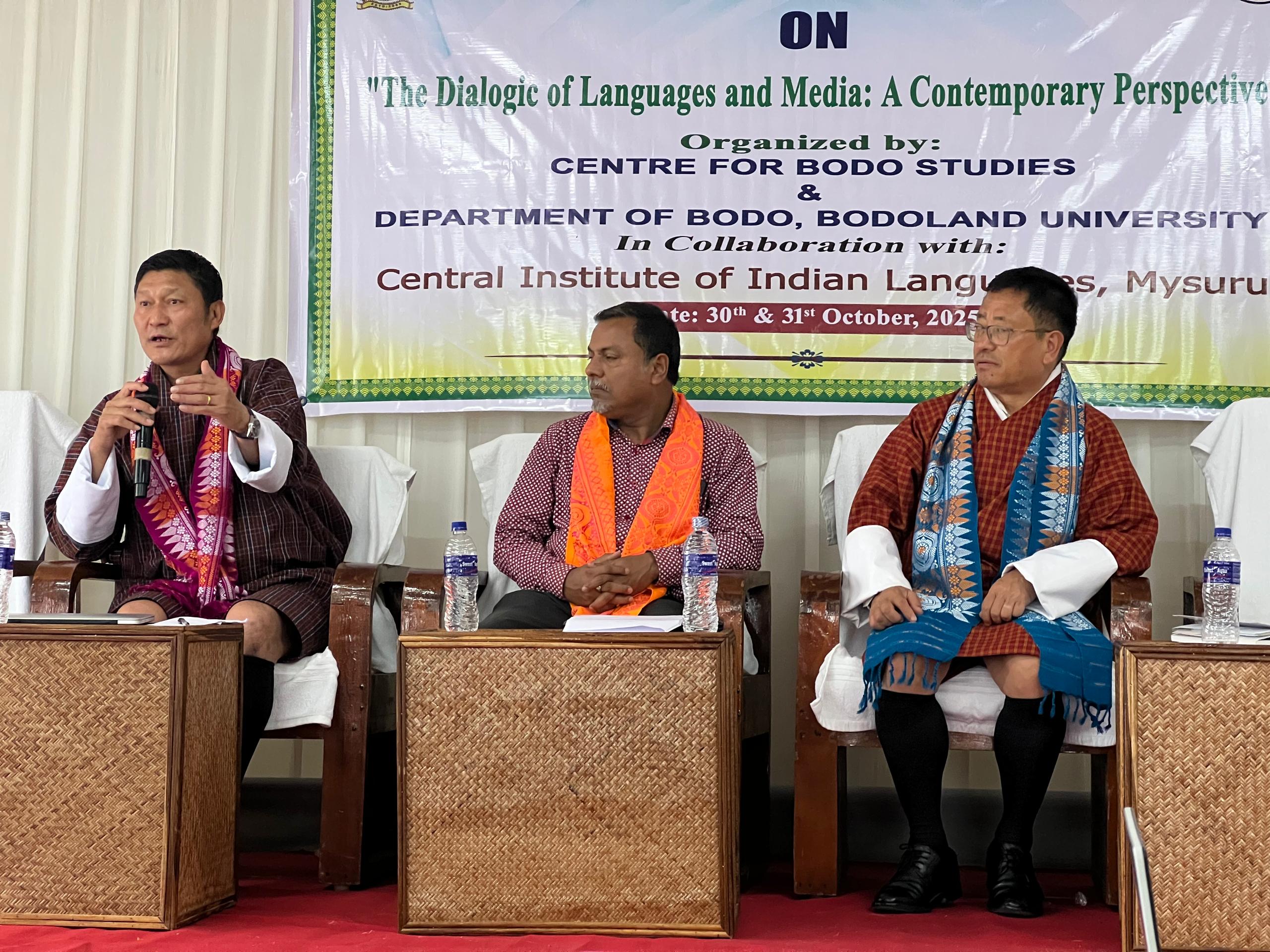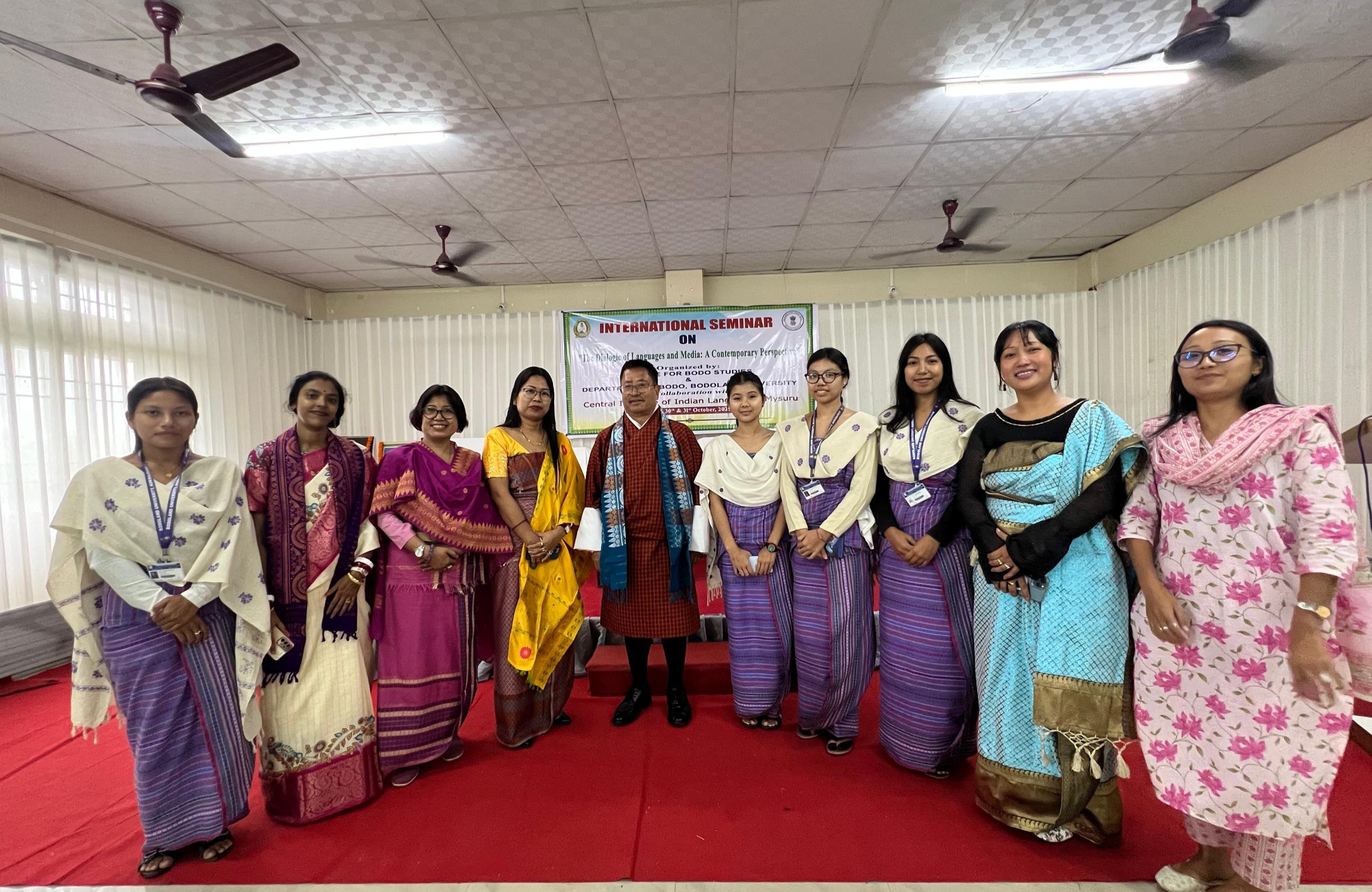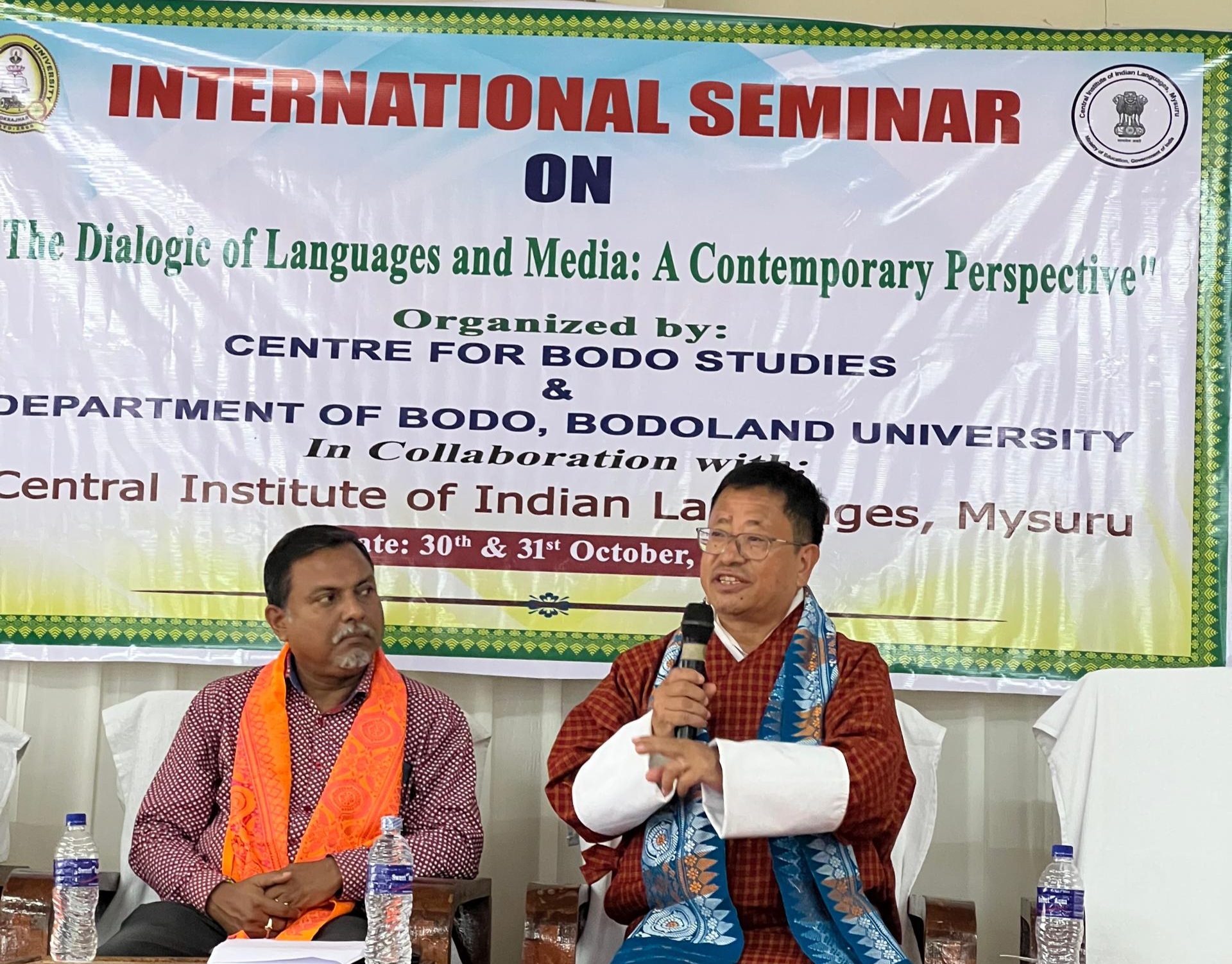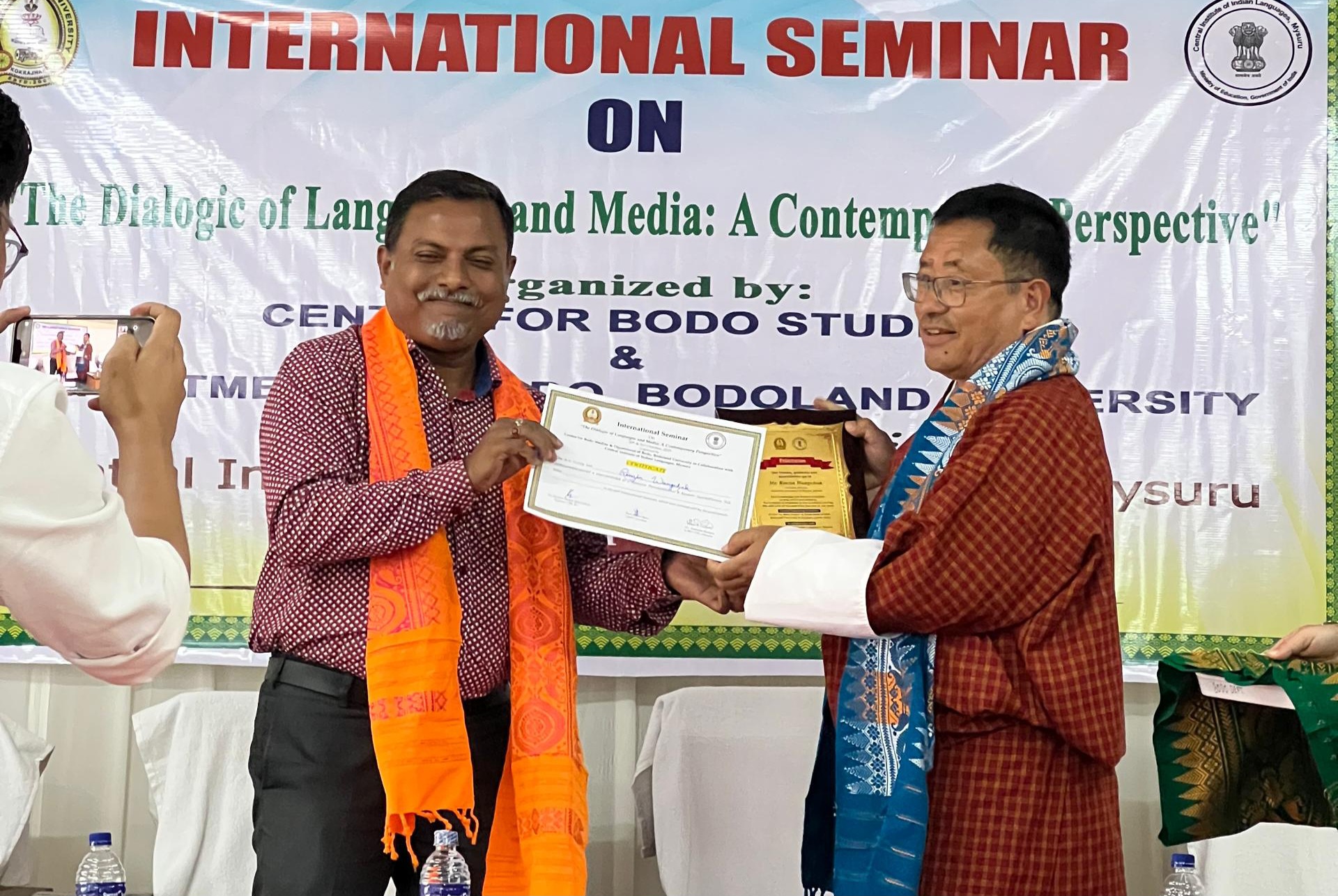Kokrajhar, Assam. “A language that finds its voice in media will always find its place in society.” With this reflection, Bhutan’s representative reminded a gathering of scholars, linguists, and media experts that language and media are inseparable partners in shaping identity and preserving culture.
At the International Seminar on the Dialogue of Languages and Media:
A Contemporary Perspective held in Kokrajhar, Assam, Bhutan shared its story — one of rich linguistic heritage facing the test of modern communication. The event was organised by the Centre for Bodo Studies and the Department of Bodo, Bodoland University, in collaboration with the Central Institute for Indian Languages, Mysuru. The Bhutanese delegation, led by the Executive Director of the Journalists’ Association of Bhutan (JAB), Rinzin Wangchuk, presented “The Dialogue of Language and Media: A Bhutanese Reflection”, highlighting the delicate balance between Dzongkha, Bhutan’s national language, and the growing dominance of English in the country’s media landscape.
The Bhutanese delegation, led by the Executive Director of the Journalists’ Association of Bhutan (JAB), Rinzin Wangchuk, presented “The Dialogue of Language and Media: A Bhutanese Reflection”, highlighting the delicate balance between Dzongkha, Bhutan’s national language, and the growing dominance of English in the country’s media landscape.
“It is a great honour to be here in Assam — a state that beautifully represents linguistic richness and media vitality,” he said. “I was last here twelve years ago. Today, I share how Bhutan is negotiating its linguistic identity in a rapidly changing media environment.”
A small country with many tongues
Bhutan’s size belies its linguistic diversity. More than 19 dialects are spoken across its valleys and mountains. Dzongkha, codified and declared the national language in 1971 under the visionary leadership of His Majesty the Third Druk Gyalpo, Jigme Dorji Wangchuck, stands as a unifying force — a symbol of sovereignty and identity. “All civil servants are required to use Dzongkha for official communication,” the presenter said. “But outside the government offices and the Parliament, English dominates — especially in the media and digital spaces.”
“All civil servants are required to use Dzongkha for official communication,” the presenter said. “But outside the government offices and the Parliament, English dominates — especially in the media and digital spaces.”
Media as the mirror of language:
Media, the presenter said, is where a language either thrives or fades. Newspapers, radio, and television once helped keep Dzongkha vibrant. Today, that role is shifting to social media — but the transition is uneven. Bhutan has only two Dzongkha newspapers left — Dzongkha Kuensel and Gyalchi Sershog — both struggling to survive.
“Mother language journalism in neighbouring countries like Nepal and India is thriving,” he said. “But in Bhutan, vernacular journalism faces an uphill battle due to small readership and low commercial returns.” Dzongkha Kuensel, Bhutan’s first national language newspaper, began publication in 1965. After media liberalisation in 2006, several private Dzongkha papers were launched. Most closed within years due to financial constraints.“This is not just about business,” he said. “It is about how technology, language, and literacy intersect in Bhutan’s communication landscape.”
English dominance in a digital Bhutan :
The presenter acknowledged the advantages of English — a language that connects Bhutan to global conversations. Yet, it comes at a cost. On social media platforms where Bhutanese youth are most active, English has become the preferred medium. Dzongkha struggles online due to limited Unicode tools, poor keyboard support, and a shortage of digital content.
“When a language disappears from the media, it begins to fade from public consciousness,” he said. “When Dzongkha loses visibility in our newspapers and online spaces, it weakens its role in shaping national dialogue and identity.”
Reviving Dzongkha through innovation
The Bhutanese reflection proposed a forward-looking path — one that blends tradition with technology.
Four key strategies were outlined:
* Incentivising Dzongkha content creation through grants, contests, and innovation funds.
* Empowering young creators to produce podcasts, short videos, and digital stories in Dzongkha.
* Strengthening digital tools such as fonts, input systems, and translation interfaces.
* Promoting bilingualism by balancing Dzongkha and English in media content.
Neighbouring examples, particularly from India and Nepal, show how local-language media can flourish with community participation and policy support. “Language sustainability,” the presenter said, “depends not on population size, but on innovation and intent.”
“My own children struggle with Dzongkha” Adding to the Bhutanese perspective, Ugyen Penjor, Chief Executive Officer of Kuensel Corporation Limited, expressed concern over young Bhutanese distancing themselves from Dzongkha. “Even my own children find it difficult to learn Dzongkha, though it is my native language,” he said. “The majority of children prefer English because it is the medium of instruction in schools and colleges.”
While the government has policies to promote Dzongkha, implementation remains weak. “The prime minister has even issued an executive order requiring institutions to conduct meetings in Dzongkha,” he said. “But English still dominates official communication.” A dialogue between past and future For Bhutan, the dialogue between language and media is not a debate between English and Dzongkha. It is about coexistence — ensuring both complement and enrich each other. “As we navigate the digital age,” the Bhutanese delegate concluded, “we must remember: A language that finds its voice in media will always find its place in society.” – By Rinzin Wangchuk


